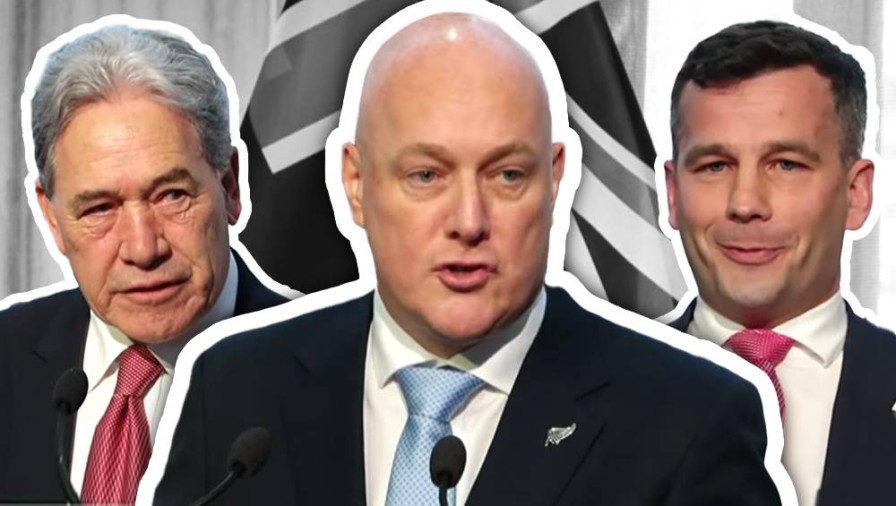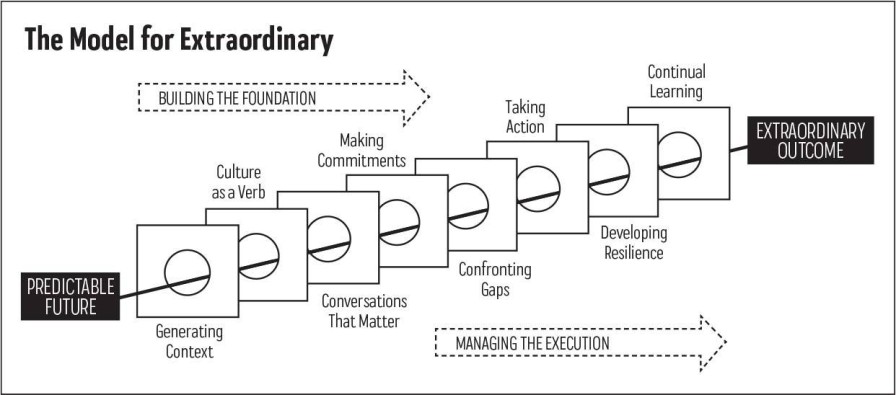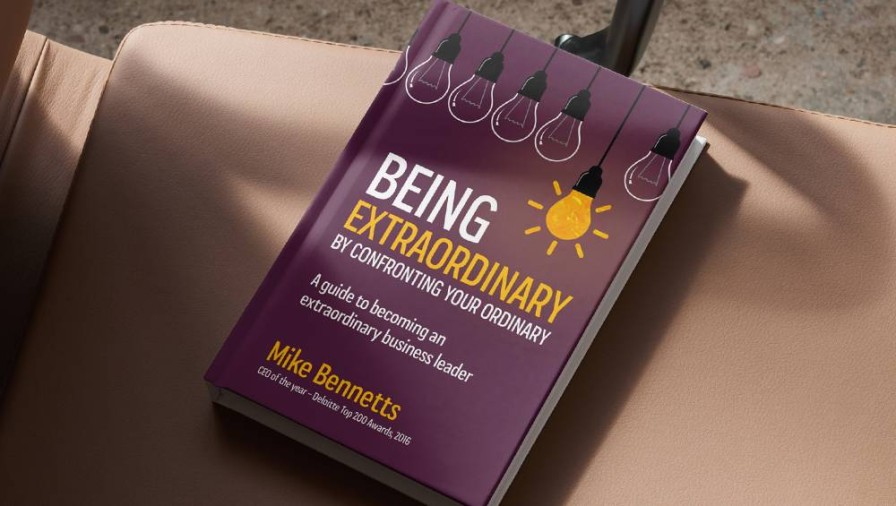From good to great: A Kiwi’s guide for CEOs
ANALYSIS: Former Z Energy boss Mike Bennetts reveals how to rise above the ordinary.
WATCH: NBR columnist Nevil Gibson speaks with Calida Stuart-Menteath.
ANALYSIS: Former Z Energy boss Mike Bennetts reveals how to rise above the ordinary.
WATCH: NBR columnist Nevil Gibson speaks with Calida Stuart-Menteath.
It was a common refrain during the 40 days of political wilderness leading up to the tripartite coalition that Prime Minister Christopher Luxon’s qualifications as a top chief executive were a disadvantage, and even undeserved.
The message spread by reporters, commentators, and cartoonists was that Luxon’s lack of political experience would enable his co-opted partners from much smaller parties to outfox him in negotiations.
Only a handful of commentaries, written by Parliamentary Press Gallery outsiders, challenged this wildly mistaken impression. In the event, they were subsequently proved right. Even some of the most partisan opponents of the new Government’s composition changed their tune, saying it has the making of a successful outcome.
That view would have been held already by Luxon’s seasoned peers and other business observers. They included one of the best commentators to have emerged on the media scene in the past year. First known under the pseudonym Thomas Cranmer, the financial and legal savvy Philip Crump attracted attention for his evisceration of the Three Waters fiasco. That was followed by equally trenchant criticisms of the hapless Labour Government in its death throes.
In a new commentary, Crump explains that the outcome of Luxon’s coalition was entirely predictable – though not to those who create political news. You do not rise to chief executive level internationally, or run a seriously large New Zealand public company rated No 1 on many measures, without having highly honed management skills.

Winston Peters, Christopher Luxon, and David Seymour.
Before he entered politics, Luxon was under daily scrutiny by customers, employees, suppliers, and shareholders. Poor performance is easily identified; resignation is automatic after a serious failure, as Kelly Bayer Rosmarin, of Optus in Australia, found out.
“More an art than a science. It is easy to spot bad management; but even when viewed up close, it can be very difficult to identify exactly what is being done that gets elite teams of people operating at peak performance,” Crump states.
It’s an observation that would be confirmed by a former chief executive of a large New Zealand company and a winner of the top business awards. Mike Bennetts – who transformed the Shell service stations into the Z Energy retail chain worth $2 billion when it was sold to Ampol – has turned his insider experience into print as a guide for future corporate leaders. Being Extraordinary by Confronting Your Ordinary is a self-published text to promote Bennetts’ new venture, Taumata Advisory, a leadership coaching and consulting business.
I am often offered such books for review but find them hard to assess. At worst, they are a collection of slides for a training course. The best can be life-changing, offering insights you can only get from someone at the coalface. But I find it hard to judge the value of reading dozens of bullet points and confusing charts that obscure the obvious.

Mike Bennetts.
A starting point is to explain the title. Bennetts uses the word Extraordinary with a capital to indicate that success in business comes from being more than ordinary. He calls that the Drift – ’going with the flow’ and not challenging yourself; avoiding hard decisions; refusing to cut losses; and not taking risks.
The hardest part is recognising how the Drift affects your own abilities and weaknesses. “Don’t flatter yourself that you can see it in others, but no-one can see it in you” is how he puts it.
An interesting revelation, in the light of how many outsiders doubted Luxon’s ability to form a coalition, is that Bennetts himself did not lead negotiations over the key events in the creation, growth, and sale of Z Energy. He didn’t think he could push himself hard enough, so he had other senior managers and external professionals lead the work.
One deal was the $785 million acquisition of the Caltex business from Chevron and the other was the successful sale to Ampol. Bennetts quotes from two Harvard business scholars, Werner Erhard and Michael Jensen, that great leaders are “noteworthy because having to come to grips with the foibles of being human, not eliminating them, but being the master of these weaknesses”.
After the sale to Ampol, Bennetts realised the major changes of being owned by an Australian could be undone by Drift. The obvious fears, common to many companies taken over by foreign or rival organisations, were a reduction in staff, cutbacks in capital spending, a cultural change for the worse, and a loss of branding and reputation.
Avoiding this fate and how to overcome the Drift is the book’s substance, backed up by insights ranging from Austrian psychoanalyst Alfred Adler and American business gurus Stephen Covey and James Collins, to children’s author ‘Dr Seuss’ (Theodore Geisel), CS Lewis, and Confucious. (A recommended reading list runs to 16 books.)
The basics are covered in eight chapters, using James Reason’s Swiss cheese model of how accidents happen. This is presented as putting layers of defence against hazards in a stack of cheese slices with random holes. An accident happens when the holes happen to line up. In the Bennetts model, the path from a predictable future to an Extraordinary outcome is to make the series of mindsets and practices line up.

Mike Bennett’s The Model For Extraordinary.
In each of these chapters, Bennetts elaborates on the most serious problems in business and how to overcome them. In the most revealing chapter, on resilience, he describes his gruelling personal physical and mental regime as he was posted to five countries while rising through the ranks as a BP executive. He ended up, with a young family, based in Singapore running operations in Asia, the Middle East, and Africa.
Bennetts likens top-performing businesspeople to professional athletes, who must constantly monitor their fitness while preparing for the next big event. Such athletes spend almost half of their time training and recovering, in between performances. But CEOs (and politicians) must always perform, leaving little time for resting, meditation, and family engagement.
Born in Auckland, and educated at Manurewa High School and Massey University, Bennetts’ goal always focused on running a large company. The opportunity arose when he returned home to NZ to create Z Energy from Shell’s exit from retailing in 2010. Cornerstone shareholders were Infratil and the NZ Superannuation Fund. The rebranding from Shell to Z occurred in 2011 and the company was launched as a listed public entity in 2013.
In 2016, Bennetts and Z Energy were respectively named CEO and Company of the Year at the Deloitte Top 200 Awards. His book will appeal to those who aspire to reach the top of their professions. Like the athletes, this involves being coached and leaving comfort zones where the majority are content to remain.
While I wouldn’t recommend management books as relaxed reading, it’s better than anodyne political commentary on leadership.

Being Extraordinary by Confronting Your Ordinary, by Mike Bennetts (Taumata Advisory www.taumataadvisory.com/beingextraordinary).
Nevil Gibson is a former editor at large for NBR. He has contributed film and book reviews to various publications.
This is supplied content and not paid for by NBR.